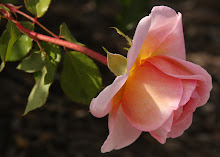Do not gaze at wine when it is red, when it sparkles in the cup,
when it goes down smoothly!
In the end it bites like a snake and poisons like a viper.
Proverbs 23:31-32
Alcohol has long been known and recognized
as a human carcinogen...
Dr. Timothy Naimi, Boston University Medical Center
I was browsing the Internet yesterday when an article on Yahoo.com caught my eye: Even Moderate Drinking Linked to Increased Cancer Risk. The opening paragraph pretty much said it all:
New research shows that even a single alcoholic drink per day
can increase your risk of developing certain types of cancer,
including breast cancer in women. Though people have long
believed that a glass or two of wine can be good for your heart,
the new study, conducted in conjunction with researchers in
the U.S., Canada and France, shows that the cancer risks
far outweigh any heart-healthy benefits.
Although that paragraph was quite unexpected, given all the hype about red wine being good for your heart, what really stunned me was Dr. Naimi's statement calling alcohol a human carcinogen. Although the good doctor states that this truth has "long been known," I can say unequivocally that I have never seen that fact in print before reading this article.
The study found that approximately 6,000 breast cancer deaths each year (15% of the total) could be attributed to alcohol consumption. Men's alcohol-related cancers tended to be in the mouth, throat or esophagus. Alcohol is also linked to cancer of the liver, colon, and rectum. Dr. Naimi finished the article with a classic understatement: Alcohol is a big preventable cancer risk factor that has been hiding in plain sight.
Having passed the five year survival mark for uterine cancer, I try my best to avoid anything that is in the least carcinogenic - such as second-hand smoke. I now have another cancer-causer to dodge. Although I do not drink, for which I am truly thankful, I do occasionally use wine in cooking. Those recipes will now be tossed in the recycling bin. As Dr. Naimi said: It is important to recognize that when it comes to cancer, there's no free lunch.























